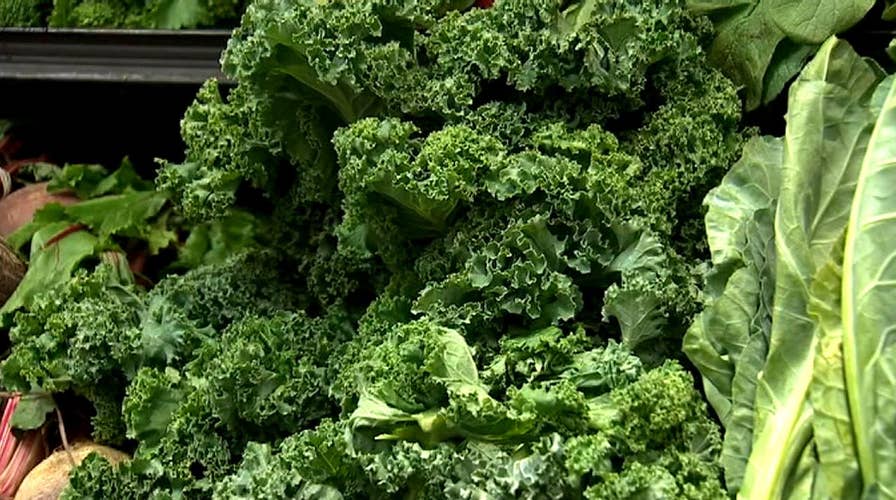Kale joins 'dirty dozen' list of foods containing pesticides
The Environmental Working Group ranking kale as No. 3 on its dirty dozen list when it comes to pesticide contamination.
A foodborne parasite has sickened more than 100 people in Massachusetts, state health officials said this week.
Officials with the Massachusetts Department of Public Health (DPH) announced Monday more than 100 people have been sickened with a Cyclospora infection since May.
Cyclospora, according to the Centers for Disease Control and Prevention (CDC), is a microscopic parasite that can cause an intestinal infection called cyclosporiasis. Symptoms typically include diarrhea, loss of appetite, weight loss, bloating, fatigue, nausea and stomach cramps, among other signs.
The state’s department of public health said the number of reported cases this year is a drastic increase from years past. Over the past three years, specifically, the Massachusetts DPH said it’s received between 18 and 33 reported cases.
LEGIONNAIRES' DISEASE BACTERIA FOUND IN MAINE WATER DISTRICT SAMPLES, STATE CDC SAYS
“Most cases this year have occurred in greater Boston, but infections have been reported in residents across the Commonwealth. Other states have also reported increases in the number of cyclosporiasis cases; the cause of the outbreak is not yet known,” the agency added.
In the U.S., “foodborne outbreaks of cyclosporiasis have been linked to various types of imported fresh produce, such as raspberries, basil, snow peas, mesclun lettuce, and cilantro,” the CDC said, noting “no commercially frozen or canned produce has been implicated to date.”
Cyclospora infections are also more common in those who travel “to warmer countries where the parasite is more common,” per the Massachusetts DPH. That said, only a small number of the reported cyclospora infections in Massachusetts “have been tied to international travel," officials added.
FLESH-EATING BACTERIA: HOW TO PREVENT NECROTIZING FASCIITIS THIS SUMMER
“This illness is not spread person-to-person like many other food-borne diseases, like salmonella or E.coli,” Dr. Larry Madoff, the medical director at the Massachusetts DPH, said in a statement. “When a specific contaminated food item is identified, prevention involves removing that product from distribution. In the absence of a specific food item linked to the outbreak, prevention, in this case, means using safe food handling practices.”
Foodborne illnesses can be avoided, in part, by thoroughly washing fruits and vegetables and storing them correctly. You can read more about other preventative measures here.

